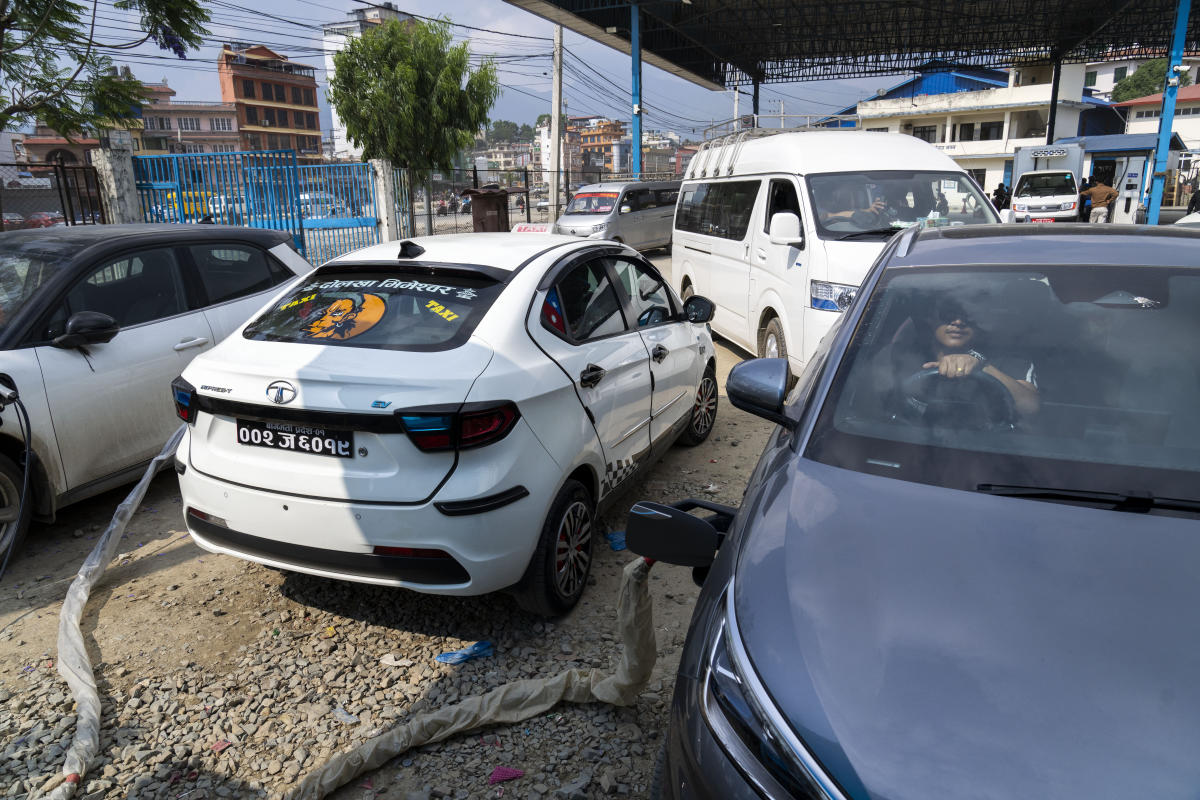KATHMANDU, Nepal (AP) — Nepal’s plentiful hydroelectric power is assisting the Himalayan country cut its oil imports and tidy up its air, thanks to a boom in sales of electrical cars.
Almost all of the electrical energy produced in Nepal is tidy energy, the majority of it produced by river-fed hydro-electricity. Thanks to that plentiful source of power, the nation is rapidly broadening charging networks and imports of EVs have actually doubled in each of the previous 2 years, according to custom-mades information.
The Nepal Electrical energy Authority approximates usage of EVs has actually lowered oil import expenses by $22 million a year, and the cost savings are increasing.
Access to electrical energy in Nepal has actually skyrocketed in the previous 3 years as hydroelectric jobs were finished. Now all however 6% of the population can reach the nation’s fast-expanding grid. That is making it possible for the nation to leapfrog its next-door neighbors in embracing EVs.
Nepal up until now has the peak capability to produce 2,600 megawatts of power which is increasing as brand-new hydropower plants are finished. A really percentage of power is likewise produced by solar plants.
“Our electrical energy in the grid is from hydropower so it is tidy energy. Therefore Nepal is preferably positioned to utilize electrical energy to run our cars in the very best method it ought to be, which is that the energy source itself is tidy. It is not coal, gas or nuclear or petroleum,” stated Kanak Mani Dixit, a prominent environment and civil liberties activist.
Authorities information on sales were not readily available, however Chinese car manufacturer BYD’s Atto 3 and Indian maker Tata’s Nexon appear to control sales of electrical traveler sedans.
Nepal has actually made enhancing usage of EVs part of its nationwide dedications to suppressing environment altering emissions, promising to raise EVs to 25% of all automobile sales by 2025 and 90% by 2030.
To assist drive more sales, the federal government is charging lower tasks on imported EVs, varying from 25% to 90%. The import tasks on gas and diesel-fueled cars are 276% to 329%.
Nepal likewise has actually been rapidly including charging stations
Sagar Mani Gnawali, who head the company’s department in charge of Electric Automobile Charging facilities Advancement, stated Nepal now has 400 charging stations and the number is anticipated to double within a year.
Jyotindra Sharma, a heart cosmetic surgeon who has actually been driving an EV, a 2019 KIA Niro, for 4 years, states he is delighted to understand he is helping in reducing the smog that positions extreme health risks in the Kathmandu valley.
“I am exceptionally pleased utilizing an electrical automobile due to the fact that I might add to the environment compared to the fuel vehicles,” he stated. “The electrical energy expense for charging and whatever is much less and I got a much, a lot more glamorous cars and truck for the exact same cost compared to gas-fueled vehicles,” Sharma stated.
EV lovers likewise consist of chauffeurs of little public vans who make their living transporting guests around the city and beyond.
“It is extremely simple to drive, there is no contamination, and it benefits the environment. Not just that, it benefits the nation as the country’s cash does not go to foreign land to purchase oil. There are advantages all round,” stated Bhakta Kumar Gupta who has drives individuals from Kathmandu to southern Nepal and back daily.
Gupta changed his diesel-run van with an EV the exact same size that can bring 10 guests. It cost him $40 to purchase diesel every day. Now, he states it costs about $6 to charge his van.
However while numerous little EV vans shuttle guests on brief paths, Kathmandu has extremely couple of EV buses and none link the capital with other cities. Contamination from buses and other cars and from burning fuels for cooking and heating made Kathmandu among the world’s worst contaminated cities for numerous days in April, as the federal government cautioned individuals to remain inside your home.
Moving to more EVs is essential, stated Dixit, the ecological activist.
“We frantically require that for the sake of our health and for the sake of our economy’s health, people’ health and our lungs in addition to our nationwide health,” he stated.
___
AP author Sibi Arasu added to this report from Bengaluru, India.
